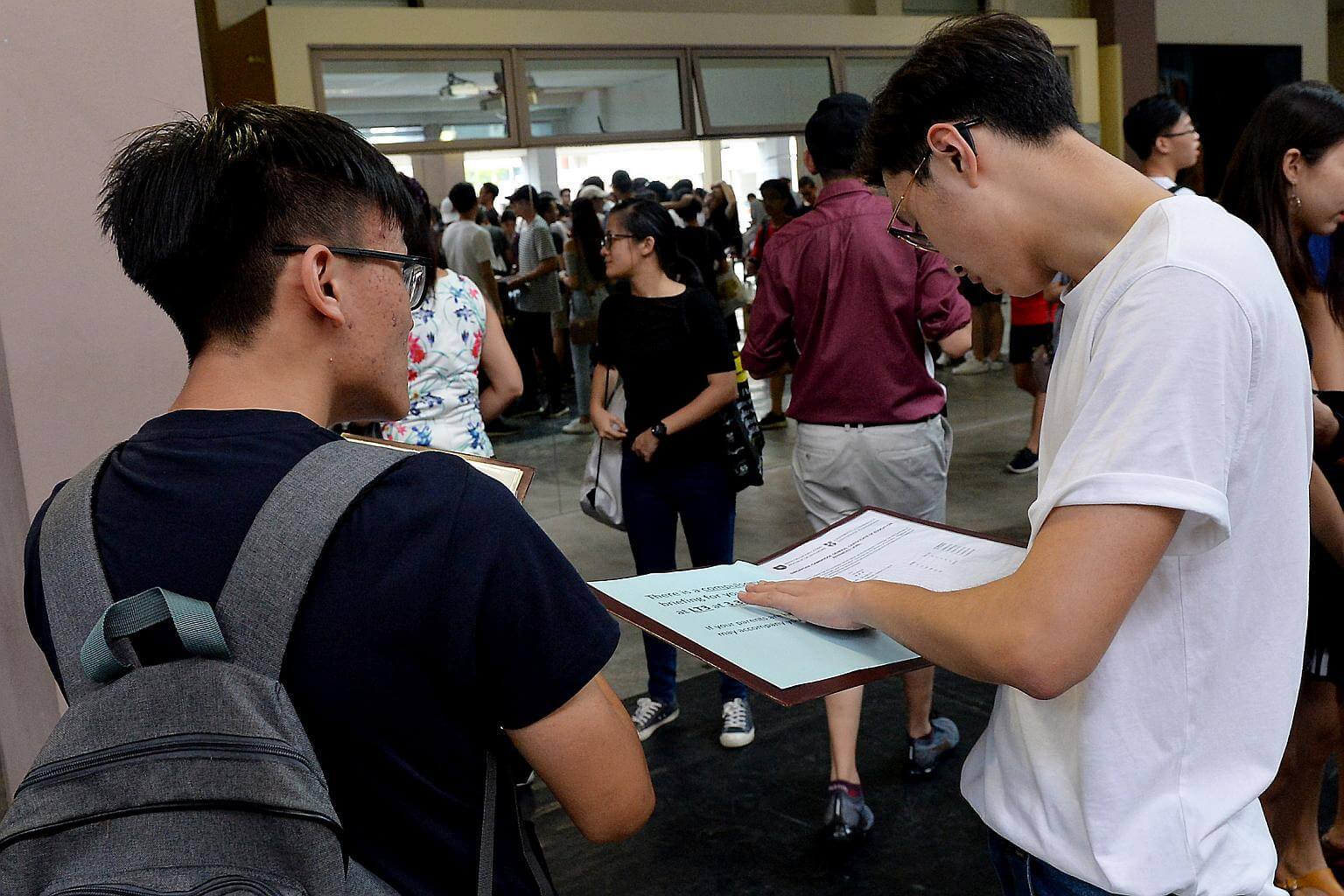Parliament: Exams board studying option of scanning, marking answer scripts electronically
Sign up now: Get ST's newsletters delivered to your inbox

Students collecting their A-level results at Nanyang Junior College. Candidates whose examination scripts were stolen in Britain last November were given a blue slip in their results file.
ST PHOTO: KHALID BABA
SINGAPORE - The Singapore Examinations and Assessment Board (SEAB) is studying the option of scanning and marking answer scripts electronically, said Senior Minister of State for Education Janil Puthucheary in Parliament on Tuesday (March 20).
"This would potentially reduce the risks, such as theft or misplacement, associated with transporting hardcopy examination scripts," he added in response a question from Mr Murali Pillai (Bukit Batok), who asked if examination scripts can be scanned or digitised before they are sent to Cambridge Assessment in Britain for marking.
A parcel of 238 A-level Chemistry scripts from Singapore were stolen from a delivery van in Britain last November en route to Cambridge Assessment. The theft came to light last month .
Despite extensive efforts to trace the scripts for Chemistry Paper 3, which carries 35 per cent of the marks for the subject, they have not been recovered.
The affected students from Anderson JC, Anglo-Chinese JC, Hwa Chong Institution and Nanyang JC were eventually given a grade for their A-level exams based on their performance in the other three chemistry papers, as well as their cohort's performance in Chemistry Paper 3.
They were also given the option to resit the paper and have the better of their two grades recorded in their result slip and certificate. One-third of the affected students eventually chose to do so.
Dr Janil noted that Cambridge Assessment has said it was the first time exam scripts were stolen, and "it is taking this unfortunate incident very seriously".
It has assured the Ministry of Education (MOE) and the SEAB that it will review its processes to ensure the security of examination papers and scripts, including a full scrutiny of the courier services offered by its suppliers, he said.
Mr Murali also asked how the SEAB ensured other students were not disadvantaged by its decision to give the affected candidates a presumptive grade based on their performance in other papers.
To this, Dr Janil said it is an established method that has been used for other candidates, such as those who are unable to submit every component of the exam due to illnesses or other circumstances.
The MOE, the SEAB and Cambridge Assessment have a number of mathematical models developed over time that can predict or triangulate a candidate's final performance in an exam, and can do so "quite robustly", he added.


